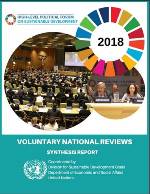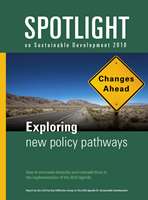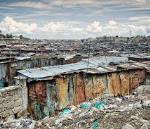Social Watch News
Published on Wed, 2018-11-21 10:26
In the United Kingdom, a consultation process coordinated by the UK network of Stakeholders for Sustainable Development (UKSSD) concludes that “inequality is projected to rise in the coming years”. Paradoxically, the unemployment rate is reaching an historical low, but “at the same time, tax and social security cuts introduced since 2012 have had a particularly severe effect on people on lower incomes. Black and ethnic minority households, families with at least one disabled member, and lone parents (who are overwhelmingly women) have suffered disproportionately”. A member of the network, Just Fair, led the drafting of the civil society chapter on SDG 10 on the reduction of inequality at the national level and highlights the fact that, thanks to the Equality Act of 2010, “authorities gather and transparently report useful disaggregated data”. Yet, successive governments have failed to implement this Act. The duty is in force in Scotland since April 2018, Wales has the power to follow suit, some councils are voluntarily implementing it and 78 Members of Parliament from five different parties are calling on the government to bring the duty into effect. |
| Published on Wed, 2018-11-21 10:18 |
Published on Fri, 2018-11-16 14:52
The third annual Synthesis Report of the voluntary national reviews (VNRs) is now available. The report was coordinated by the Division for Sustainable Development Goals of the United Nations Department of Economic and Social Affairs. The third annual Synthesis Report of the voluntary national reviews (VNRs) is now available. The 'Voluntary National Reviews 2018: Synthesis Report' synthesizes some of the findings of the 46 VNRs presented at the HLPF in July 2018. The report was coordinated by the Division for Sustainable Development Goals of the United Nations Department of Economic and Social Affairs. |
Published on Fri, 2018-11-16 06:56
A strong and dynamic World Health Organisation (WHO) is critical for the achievement of the SDGs, especially SDG 3 on health and well-being. The WHO constitution mandates the organization "to act as the directing and co-ordinating authority on international health work”. However, its ability to fulfil this mandate is circumscribed by the nature of its financial resources. WHO’s biennial budget for 2018-2019 is US$ 4.42 billion, 2 just over a quarter of the total sales of the top-selling medicine Humira (Adalimumab) in 2016 (US$ 16.08 billion). In part this is because many of the organization’s donors share the view that WHO may not need a huge budget to carry out its constitutional mandate, which mainly consists of setting norms and standards in the area of public health. However, a large part of the organization’s spending in 2016-2017 went to activities related to service delivery rather than to norms and standard setting. For example, US$ 1.16 billion (25.67%) was spent on its polio eradication programme. |
Published on Fri, 2018-11-16 06:43
Widespread privatization of public goods is systematically eliminating human rights protections and further marginalising the interests of low-income earners and those living in poverty, a United Nations human rights expert has said. In a recent report to the UN General Assembly, the Special Rapporteur on extreme poverty and human rights, Mr Philip Alston (from Australia), said that existing human rights accountability mechanisms are clearly inadequate for dealing with the challenges presented by large-scale and widespread privatization. "Privatizing the provision of criminal justice, social protection, prisons, education, basic healthcare and other essential public goods cannot be done at the expense of throwing rights protections out of the window," Mr Alston said. |
| Published on Thu, 2018-11-08 08:35 |
Published on Wed, 2018-11-07 17:44
In Kenya the NGO SODNET reports that “the widening gap between the rich and the poor continues to undermine confidence in the institutions of democratic economic governance and, alongside it, the imperative of social cohesion as a condition for sustainable development”. According to Edward Oyugi, J. Ocholla and Mwaura Kaara “Kenya still lives uneasily with a colonial past and its legacy of unequal development, arising from acute asymmetry of power relations associated with the continuation of a colonial system that had merely engaged a strategic retreat gear against the false belief that the post-colonial dispensation marked a systemic transformation of the colonial societies.” The report concludes that democracy and sustainable development remain “a dream” because “the culture and practice of corruption has grown deep and enduring roots in Kenyan society and become endemic” and allows for concentration of wealth within the ruling circles. The political and bureaucratic leadership benefit from it “and the existing governance institutions either kick the can down the road or lack both the will and capacity to stop them from doing so”. |
Published on Tue, 2018-11-06 00:00
In France, a High Level Steering Committee for the implementation of the SDGs held its first meeting in April 2018 as a forum to debate and collectively build, with public and private actors, a ‘roadmap’ to be issued in the fall of 2019.This move was applauded by the ATD Fourth World Movement for being inclusive, but also criticized as “coming late”. ATD Fourth World finds “very little effort to synergize the various objectives, and "not a major concern" for poverty in France. The Movement hopes “that the enforcement of each SDG reaches the poorest, on the national territory as well as in the international development cooperation by France” and it campaigns in particular on the issue of unemployment (currently 9 percent in France) demanding “access to work as a right, just as the right to education or the right to social security”. |
Published on Fri, 2018-11-02 18:09
Three years into the implementation of the 2030 Agenda for Sustainable Development, concerns continue about stalled indicators, missing indicators and proliferating and potentially competing data sources, which makes it difficult to assess progress (see GPW Briefings #22: The Ups and Downs of Tiers: measuring SDG progress; #23: SDG Indicators-the forest is missing). Initiatives abound in the shifting terrain of the generation, validation and use of data to satisfy the demands of a growing market of players. In addition to the work of the UN mandated Inter-agency and Expert Group on SDG Indicators (IAEG-SDGs), these concerns and challenges have drawn the attention of a number of official statisticians and practitioners. |
Published on Fri, 2018-10-26 18:41
Rather than reaching the goal of ending hunger that is called for in SDG 2, the world is on track to increased and more exacerbated food insecurity. Since the adoption of the SDGs in 2015, global rates of food insecurity have increased – with some 815 million people facing hunger and malnourishment, and it is estimated that this number will continue to increase. The present understanding of the root causes of hunger and malnutrition and of the policy solutions that can support long-term, structural change, is not sufficiently up to speed with the kind of shifts that need to take place. A radical shift is needed. Eradicating hunger requires a radical shift from dominant food system models and development paradigms, towards addressing the food system as a whole, and creating enabling public policies that address key issues affecting food insecurity and malnutrition. Mainstream monitoring of food security and nutrition fails to address the critical questions around the social control of the food system, and in particular natural resources, and proposes solutions based on the current industrial model of production that feeds a global, and inherently unequal economy. |
SUSCRIBE TO OUR NEWSLETTER







